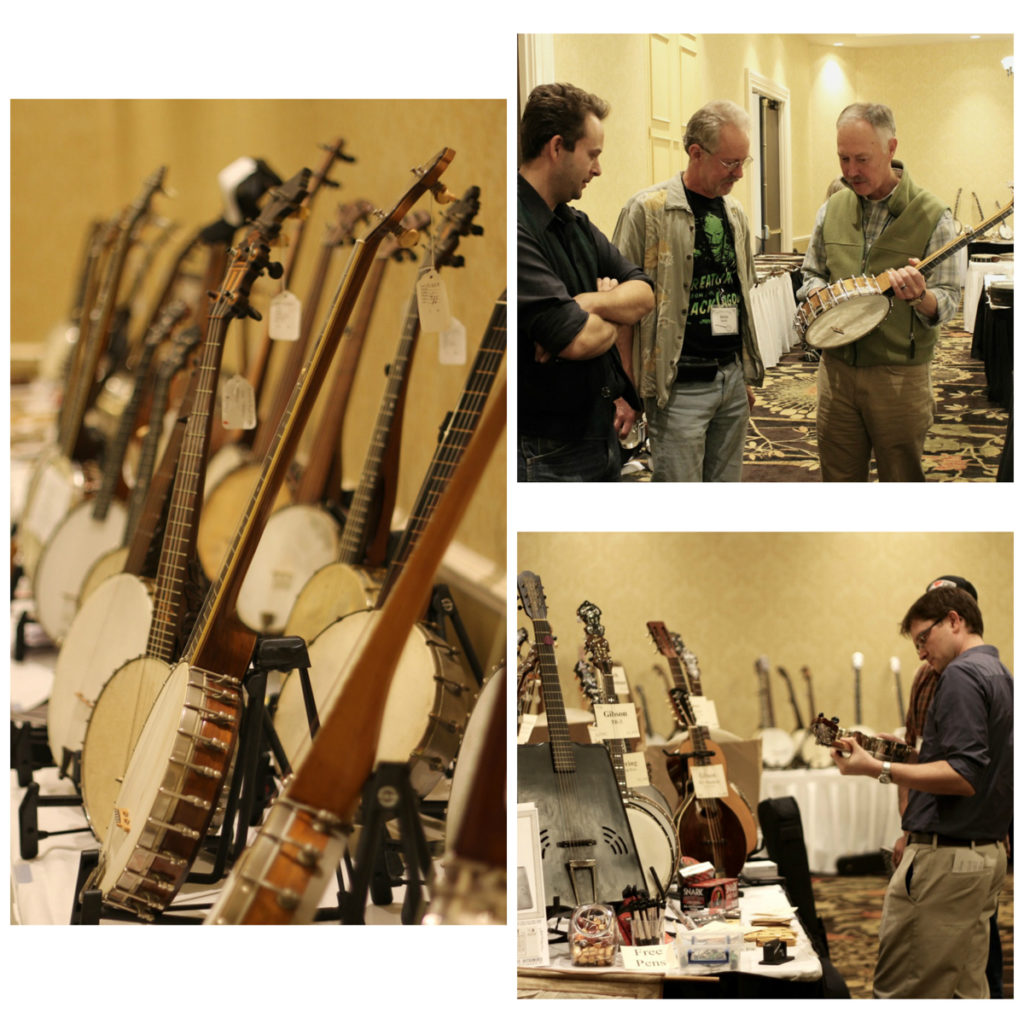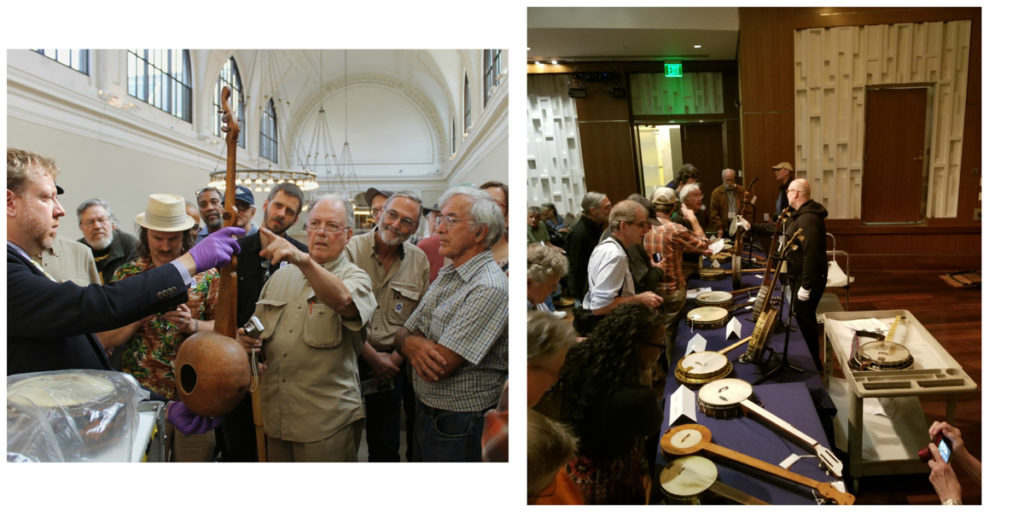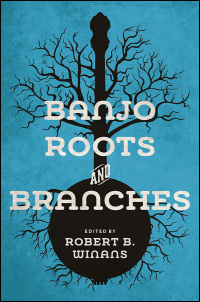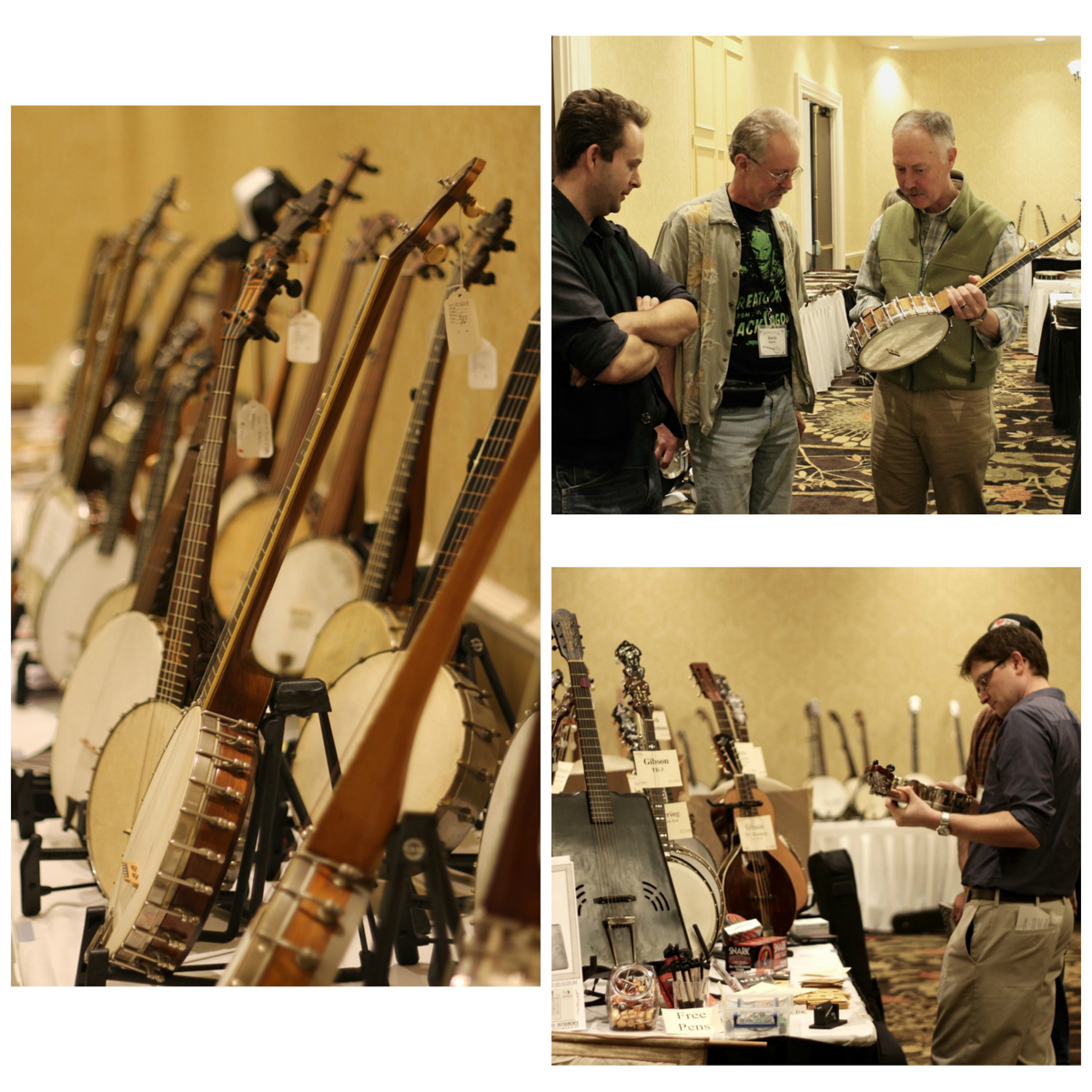I came to the banjo in the early months of 1994, at the age of 19, when I saw a PBS broadcast of the documentary The Weavers: Wasn’t That a Time! (1981). In addition to being entranced by depictions of the banjo in the hands of the great Pete Seeger (1919—2014), I was also deeply moved by what I felt to be a positive sense of community projected in the film. It was a major turning point as I became transfixed, learning about how the power of music shaped various social movements in the 20th century. Within the next year, after getting my own banjo, I discovered that the instrument could serve as a gateway to learning about American history in ways that I had never before experienced.
Now, after 24 years of chasing the banjo and its long, complex history, I often reflect on the incredible people I’ve collaborated with through the years, building on that sense of community that attracted me to the banjo in the first place. I’ve enjoyed many rich opportunities to learn from a great diversity of individuals and traditions in the Americas, West Africa, and Europe. Here in the United States, some of the most significant people I’ve known in the banjo world are associated with the annual Banjo Gathering. Formerly called the Banjo Collectors Gathering, this event has informed many aspects of my life as an archivist, ethnomusicologist, and musician.
Since 1998, this informal network of collectors, researchers, instrument builders, and musicians has shaped the way people understand and appreciate the banjo’s deep links within the greater American experience. What makes the Banjo Gathering distinct from other banjo-centric events is that its founders – banjo collectors and scholars Peter Szego and Jim Bollman – have maintained the event to focus entirely on the banjo as a historical, cultural, and design object.
Each Gathering has met in a range of locations along the east coast with geographic significance to banjo history, such as Rochester, Boston, Long Island, Philadelphia, Baltimore, Washington, D.C., Nashville, Knoxville, Tennessee, and Williamsburg, Virginia. This year, the Banjo Gathering is celebrating its 20th anniversary (1998—2018) on November 1—4 by convening at Bristol’s Birthplace of Country Music Museum (BCMM). Here, registered participants will experience the Gathering’s signature activities while exploring the banjo’s intersections with the museum’s mission to illuminate Bristol’s role in the birth and development of country music.
One of those signature activities is an “expo,” which will occupy the museum’s Special Exhibits Gallery. In this space, attendees will display instruments and ephemera predominantly from the 19th and early 20th centuries, and they will also get the chance to network and to talk in a more casual atmosphere.

The Gathering also provides a platform for the latest scholarship, talks, and panel discussions on banjo history. As outlined on the Banjo Gathering website, the event welcomes presentation proposals that cover:
* The art and craft of banjo-making from early gourd instruments to contemporary banjos
* The banjo’s role in the early recordings and music and dance in genres such as minstrelsy, jazz, country, old time, and bluegrass
* The American experience through banjo history, including the African Diaspora; America’s history of slavery, racism, and resistance; and social class and cultural stereotypes

Every Gathering also typically includes site visits and field trips to locations that add value to the narratives surrounding banjo history.

I attended my first Banjo Gathering in 2001 at the invitation of banjo builder and historian George Wunderlich, and I’ve only missed one Gathering since that time. I keep coming back year after year because I see the constant potential of tapping into the knowledge of other attendees, exploring the instruments and ephemera they bring, and brainstorming ways of applying that knowledge in public-facing outputs. A goodly number of exhibits, books, and recordings have grown out of this event, and 2018 looks like it will maintain this trend.
What makes the 20th Anniversary Banjo Gathering particularly special for me is that it coincides with the University of Illinois Press publication of Banjo Roots and Branches, edited by Robert B. Winans. Many of the authors of this highly anticipated book are regular Banjo Gathering attendees. The book’s subtitle – West African precursors, African-Caribbean origins, North American journeys – measures the breadth of dedication and influence that the Banjo Gathering represents. The book not only pays homage to another University of Illinois Press author – Dena Epstein and her book Sinful Tunes and Spirituals – but it is also dedicated to Shlomo Pestcoe (1958—2015), who was a part of the greater Banjo Collectors community and a driving force behind the book.

For some attendees, the Banjo Gathering is just a good time to get together with friends who like to collect similar things and to talk about their passion. For others, this event provides access to primary source materials that illuminate banjo history in ways that do not exist anywhere else. For me, I see the Banjo Gathering as an opportunity to ask questions about what it means to understand the American experience using an instrument whose history has the power to challenge and inspire.
Come explore what banjo history and the American experience means to you when you reserve your place at the Banjo Gathering!


